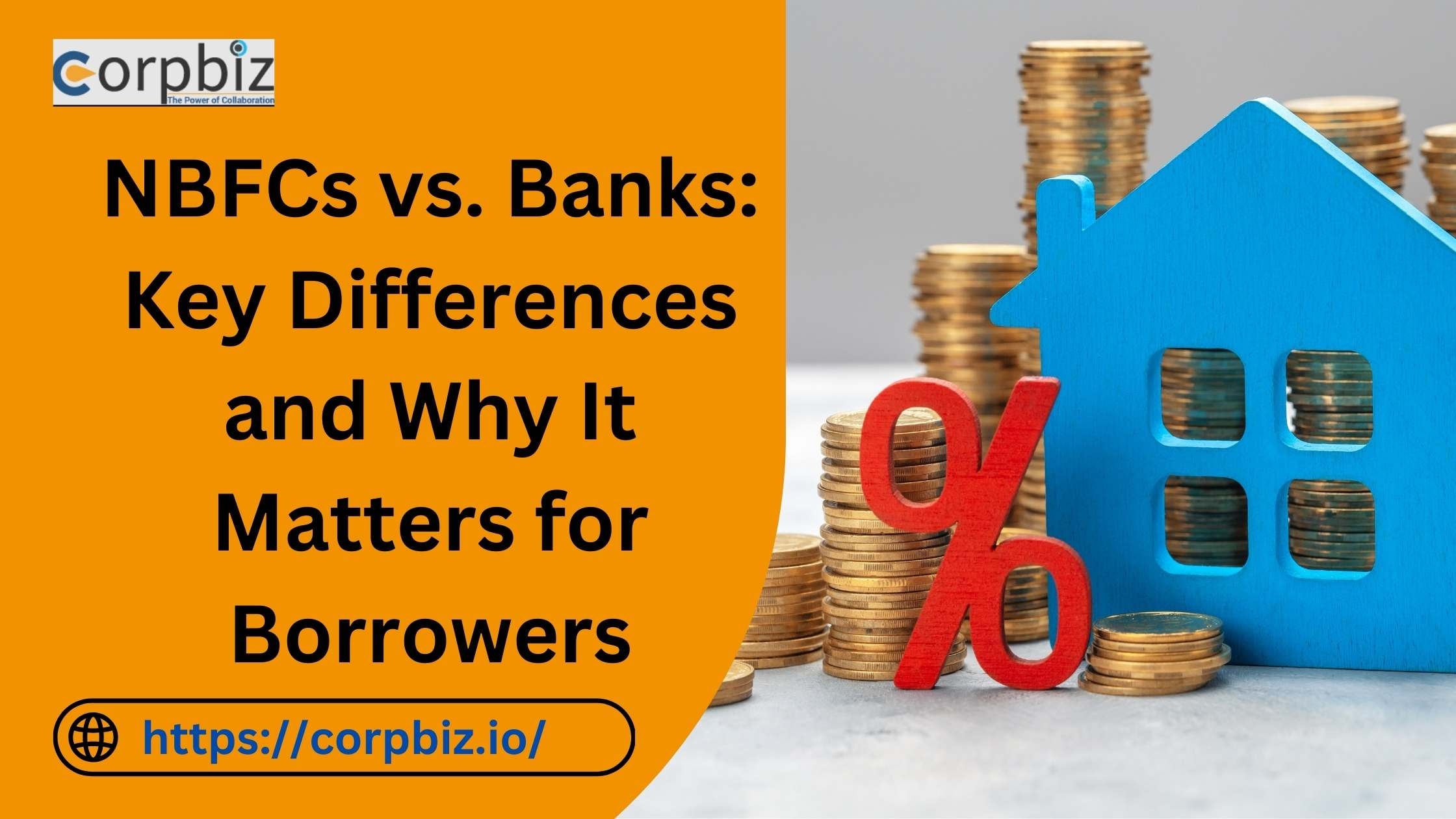NBFCs vs. Banks: Key Differences and Why It Matters for Borrowers

When it comes to borrowing money, most people think of banks first. But there is another group of financial institutions that play a big role in lending – NBFCs, or Non-Banking Financial Companies. In India, NBFCs are becoming more popular, especially for personal loans, business loans, and digital financial services.
In this blog, we will explore how NBFCs are different from banks, why it matters for borrowers, and how different licenses like NBFC Registration in India, Account Aggregator License, P2P Lending License in India, and PPI License in India help NBFCs offer better and wider services.
What is an NBFC?
An NBFC (Non-Banking Financial Company) is a company that provides financial services like loans, asset financing, leasing, and investment. But unlike banks, NBFCs cannot accept regular savings or current account deposits from the public.
NBFCs are registered under the Companies Act, and they need special permission from the Reserve Bank of India (RBI) to operate.
Common services NBFCs provide:
-
Personal loans
-
Business loans
-
Gold loans
-
Home loans
-
Vehicle financing
-
Investment and insurance services
What is a Bank?
A bank is a government-regulated financial institution that offers a wide range of financial services. Banks accept deposits from the public, provide loans, and offer services like issuing credit/debit cards, money transfers, and savings accounts.
Banks in India are strictly regulated by the RBI, and they follow strict rules to protect customer money.
Key Differences Between NBFCs and Banks
Let’s break it down in a simple table:
|
Feature |
Banks |
NBFCs |
|
Regulator |
RBI (Banking Regulation Act, 1949) |
RBI (Companies Act, 2013 and RBI Act, 1934) |
|
Deposit Acceptance |
Can accept savings and current deposits |
Cannot accept demand deposits |
|
Payment Systems |
Can issue cheques and have access to payment systems |
Cannot issue cheques |
|
CRR and SLR |
Must maintain CRR and SLR |
No need to maintain CRR/SLR |
|
Banking License |
Required |
Not required (but needs NBFC registration in India) |
|
Lending Focus |
Personal and business loans, mainly secured |
Focus on unsecured and small-ticket loans |
|
Digital Financial Services |
Available |
Rapidly growing through fintech models |
Why NBFCs Are Gaining Popularity
-
Easy Loan Approvals
NBFCs are known for quick loan processing. They use digital tools to check your credit score and approve loans faster than traditional banks. -
Flexible Terms
NBFCs often offer flexible repayment terms and lower paperwork. This is very useful for small business owners and individuals with less credit history. -
Tech-Driven Models
Many NBFCs operate online, making it easy to apply for loans from your phone. They also offer services like investment advice, insurance, and even payment solutions.
Key Licenses That NBFCs Hold
To provide different services, NBFCs must get specific licenses from RBI. Here are a few important ones:
1. NBFC Registration in India
Before offering financial services, a company must register as an NBFC with the RBI. This registration proves the company meets the capital and compliance requirements to lend money.
2. Account Aggregator License
This Account Aggregator License allows an NBFC to collect and share financial data from different sources with user consent. It helps borrowers get better loan offers by giving lenders a full picture of their financial health.
Why it matters for borrowers: It reduces the need to collect and submit documents. It also helps in faster and better loan approvals.
3. P2P Lending License in India
P2P stands for Peer-to-Peer. NBFCs with this P2P Lending License in India run platforms that connect borrowers directly with lenders (like individuals or investors), without a traditional middleman like a bank.
Why it matters for borrowers: It can offer lower interest rates and faster approval. Great for people who don’t qualify for bank loans.
4. PPI License in India (Prepaid Payment Instruments)
This PPI License in India allows NBFCs to offer digital wallets and prepaid cards. These can be used for online shopping, bill payments, and fund transfers.
Why it matters for borrowers: It offers easy and secure ways to manage money and repay loans digitally.
How to Choose Between NBFCs and Banks
Here are a few tips to help you decide:
-
Need fast approval? Choose NBFCs.
-
Need large loans at lower interest? Go with banks.
-
New to credit? NBFCs may offer better chances of approval.
-
Looking for convenience and tech services? NBFCs often provide mobile apps and easy-to-use platforms.
Conclusion
Both banks and NBFCs play important roles in India’s financial system. For borrowers, the choice depends on your needs, urgency, and credit score. NBFCs, especially those with licenses like Account Aggregator, P2P Lending, and PPI, offer modern, quick, and digital solutions.
With NBFC Registration in India, many new financial companies are now helping individuals and businesses access credit faster and easier. As financial technology keeps growing, NBFCs are becoming a powerful alternative to banks — especially for borrowers who want flexibility, speed, and digital ease.
- Art
- Causes
- Crafts
- Dance
- Drinks
- Film
- Fitness
- Food
- Juegos
- Gardening
- Health
- Home
- Literature
- Music
- Networking
- Other
- Party
- Religion
- Shopping
- Sports
- Theater
- Wellness


